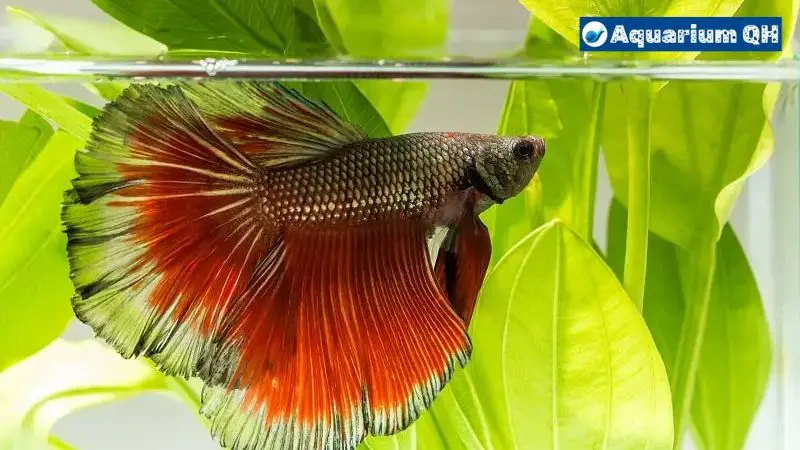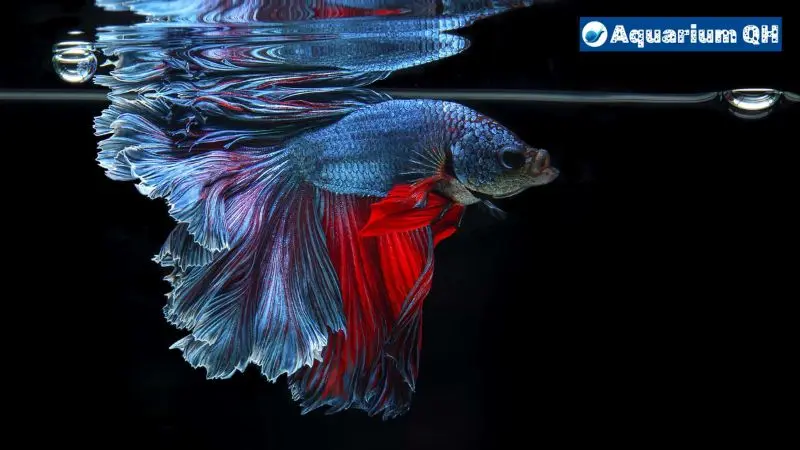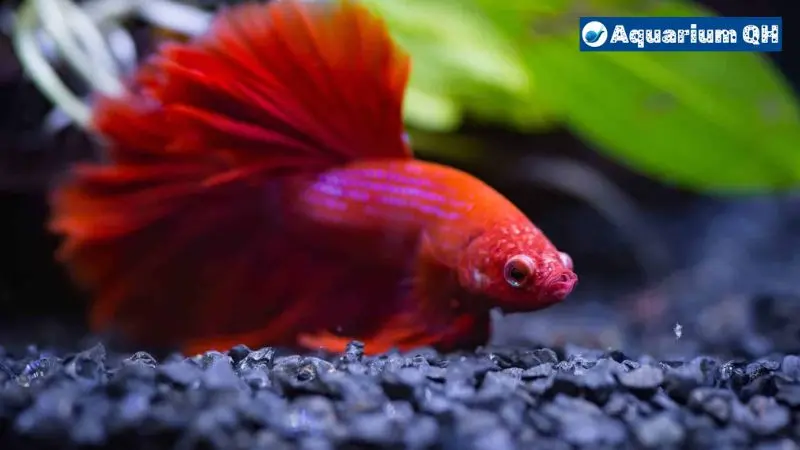Betta fish, also known as Siamese fighting fish, are popular pets cherished for their vibrant colors and flowing fins. These mesmerizing creatures have captivated fish enthusiasts for centuries, but amidst the awe and admiration, questions arise about their basic needs, including their sleep patterns.
In this article, Aquarium QH delve into the intriguing question: Do betta fish need darkness to sleep?
Understanding Betta Fish Sleep Patterns

Do Betta Fish Sleep?
Contrary to popular belief, betta fish do indeed sleep. However, their sleep patterns differ from those of mammals. Instead of closing their eyes and drifting into a deep slumber, bettas enter a state of rest characterized by reduced activity and slowed metabolism.
Nocturnal or Diurnal Sleepers?
Betta fish are not strictly nocturnal or diurnal sleepers; instead, they exhibit a flexible sleep-wake cycle. In their natural habitat, bettas adapt to varying light conditions, adjusting their rest periods accordingly.
Importance of Darkness for Betta Fish
Mimicking Natural Habitat
In their native environment, betta fish reside in densely vegetated areas with subdued lighting. By recreating similar conditions in captivity, owners can help bettas feel more secure and comfortable, facilitating restful sleep.
Reducing Stress Levels
Exposure to prolonged bright light can disrupt a betta fish’s natural sleep patterns and induce stress. Providing periods of darkness allows bettas to unwind and recharge, promoting overall well-being.
Optimal Lighting Conditions for Betta Fish Tanks

Balancing Light and Darkness
Achieving a balance between light and darkness is crucial for betta fish health. Consider using a timer to regulate the aquarium lights, simulating natural day-night cycles.
Avoiding Excessive Exposure to Light
Excessive exposure to light can lead to sleep disturbances and behavioral issues in betta fish. Limiting the duration of lighting and providing ample hiding spots can mitigate these problems.
The Role of Plants and Hiding Spots
Providing Shelter for Rest
Live plants and decorations not only enhance the aesthetic appeal of a betta fish tank but also serve as essential hiding spots. Bettas seek refuge in foliage and caves, where they can retreat for rest and relaxation.
Promoting Natural Behaviors
Creating a stimulating environment with plenty of hiding spots encourages betta fish to exhibit their natural behaviors, including exploring, resting, and interacting with their surroundings.
Signs of Stress or Sleep Deprivation

Behavioral Indicators
Observing changes in a betta fish’s behavior can provide valuable insights into its well-being. Signs of stress or sleep deprivation may include increased aggression, lethargy, or loss of appetite.
Physical Symptoms
Physical symptoms such as faded coloration, fin rot, or abnormal swimming patterns may indicate underlying health issues. Prompt attention to these signs can prevent further complications.
Tips for Creating a Restful Environment
Using Dimmable LED Lights
Investing in dimmable LED lights allows for easy adjustment of lighting intensity, mimicking the natural fluctuations of daylight. This helps regulate betta fish sleep patterns and reduces stress levels.
Establishing a Consistent Routine
Maintaining a consistent lighting schedule and providing a quiet environment during nighttime hours can promote healthy sleep habits in betta fish. Avoid sudden changes that may disrupt their routine.
Common Misconceptions about Betta Fish Sleep
Do Betta Fish Close Their Eyes?
Contrary to popular belief, betta fish do not have eyelids and cannot close their eyes in the traditional sense. However, they may exhibit reduced activity and seek shelter for rest.
Can They Sleep Anywhere?
While betta fish can technically sleep anywhere, providing suitable hiding spots and dim lighting encourages them to rest comfortably and reduces stress levels.
Understanding Betta Fish Biology
Unique Anatomical Features
Betta fish possess unique anatomical features, including labyrinth organs that allow them to breathe air at the water’s surface. Understanding these adaptations is essential for providing optimal care.
Adaptations for Survival
In their natural habitat, betta fish have evolved various adaptations to survive in diverse environments, including the ability to endure low oxygen levels and fluctuating light conditions.
Conclusion
In conclusion, betta fish do require periods of darkness to sleep and thrive. By understanding their natural sleep patterns and providing an environment that mimics their native habitat, owners can ensure the well-being and longevity of these captivating creatures.
FAQs
Do betta fish sleep with their eyes open? Betta fish lack eyelids and cannot close their eyes, but they may rest in a stationary position.
How long do betta fish sleep each day? Betta fish typically rest for short periods throughout the day and night, adapting to their environment’s light-dark cycles.
Can betta fish sleep in complete darkness? While betta fish can sleep in complete darkness, providing dim lighting and hiding spots is recommended to reduce stress.
What happens if a betta fish doesn’t get enough sleep? Sleep deprivation can lead to stress, weakened immune response, and behavioral issues in betta fish.
Do betta fish need a bedtime routine? Establishing a consistent lighting schedule and providing a quiet environment during nighttime hours can help regulate betta fish sleep patterns.




